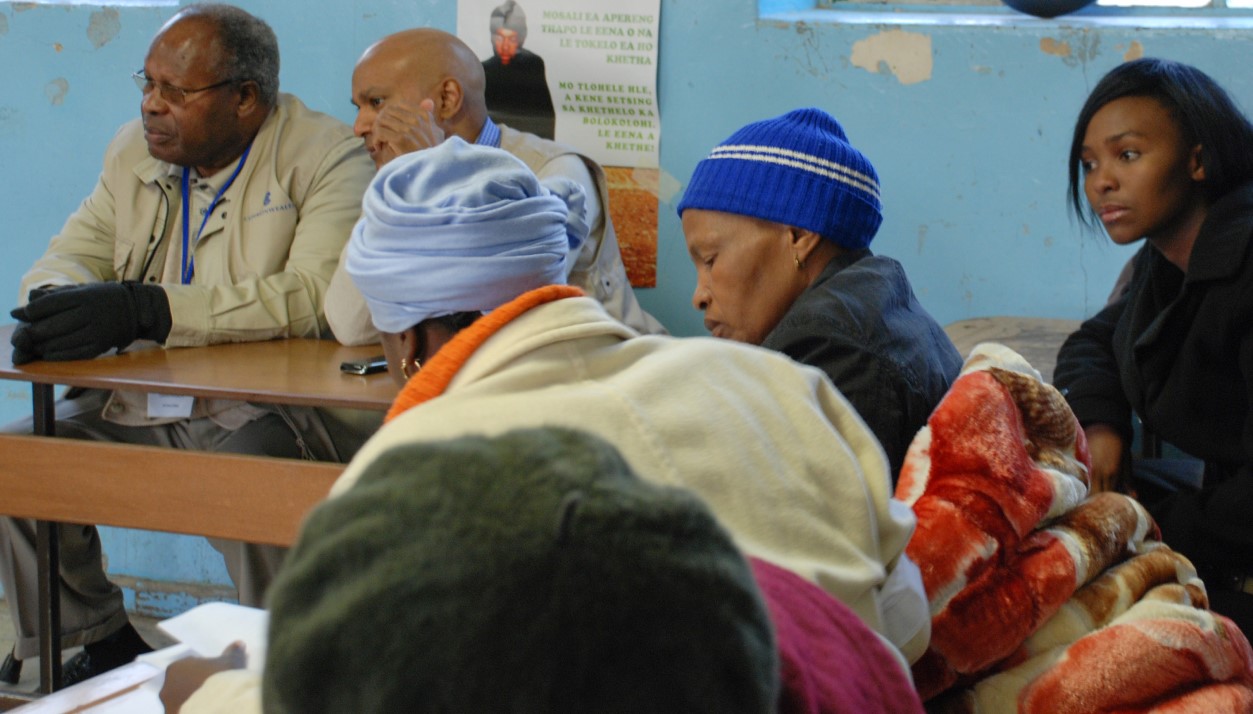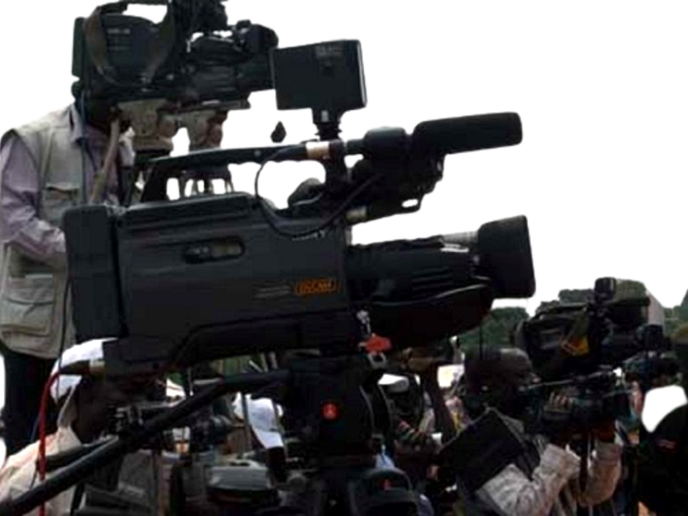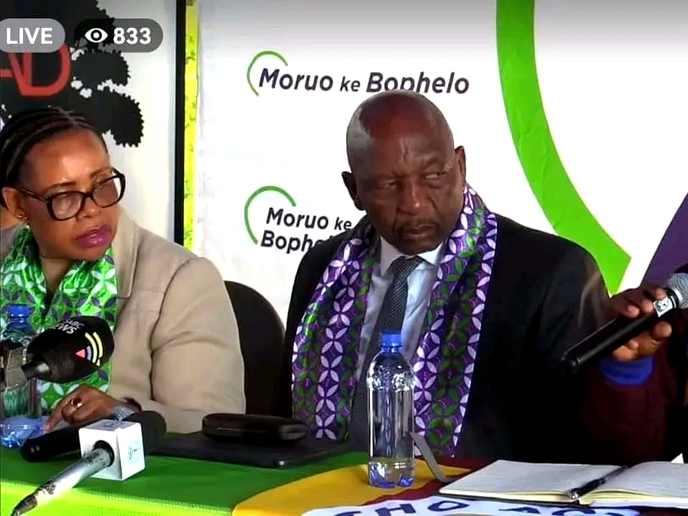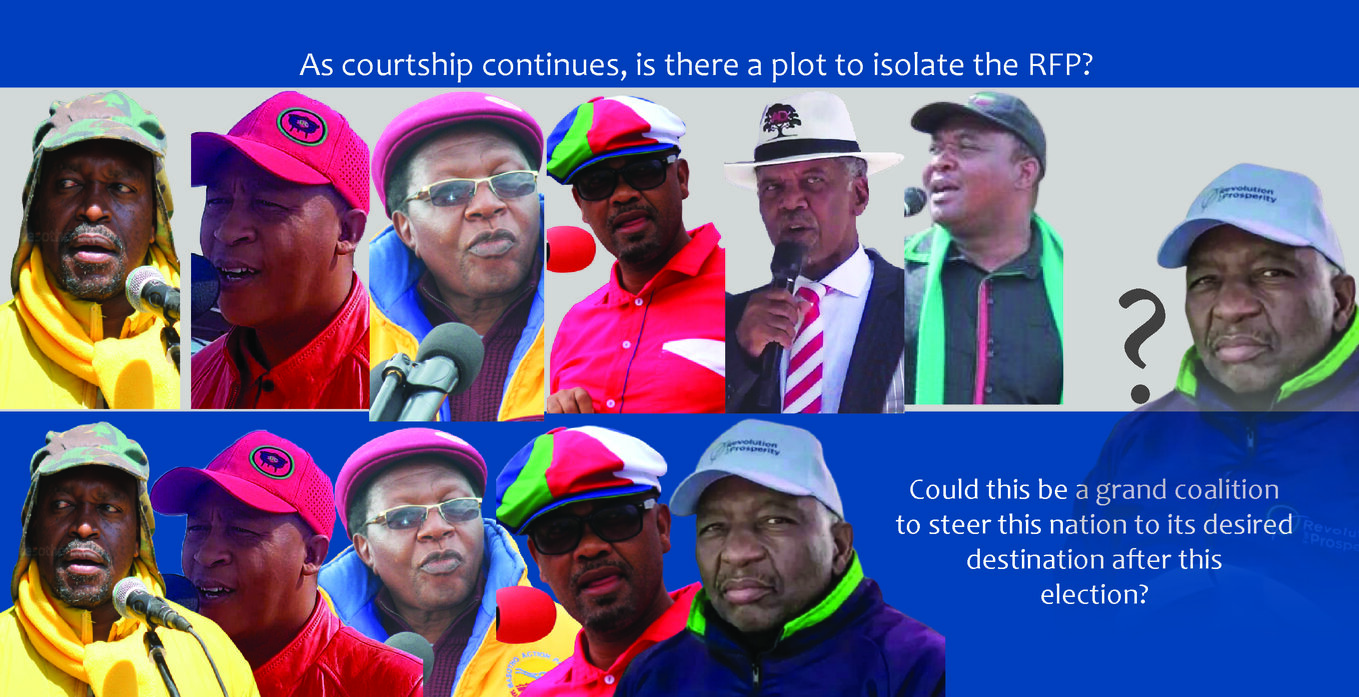Influence of strongholds ‘tight grips’ in electoral victory?

Mr Mzimkhulu Sithetho
Managing Director of the Governance Institute for Sustainable Development and Editor-In-Chief of thizkingdom.com

Analysing the value for political parties in relying on and retaining traditional strongholds when contesting for elections?
Introduction
Most political parties work hard to maintain and retain their high performance in those areas in which they traditionally clinch victory, while also working hard to reinforce their presence in those areas in which they are weak. The areas in which they are strong are their strongholds. The areas in which they are weak are their desired strongholds or tight grips.
Strongholds give parties assurance of victory even if they were to perform poorly in an election, as a result of many factors, one of which is emergence of new strong parties or voter apathy.
Elections are naturally competitive; as other parties are also working hard to clinch victory in all the 80 constituencies. No party can claim ownership of the voters in a given area
. However, focus only on strongholds could be disadvantageous for political parties as they only get votes in those areas that they have greater support. If they limit themselves to their strongholds, they never grow. A critical question is whether political parties undertake an evaluation or audit of why they did not perform as they had desired in certain areas in the previous election.
The evaluation exercise would provide the parties with factual information and empirical evidence on their dismal performance in certain areas. It would inform the parties on the strategies they need to employ for addressing the weaknesses that led to their poor performance in the areas they did not do well.
If parties carried out an evaluation of why they performed the way they did would also allow them to devise strategies on how they could maintain or strengthen their performance in those areas they performed well. It would also help them develop strategic inroads in those areas they did not do well so that they grow from strength to strength from one election to the next. Numbers matter a lot in the political life of political parties.
All Basotho Convention (ABC)
A snapshot of the ABC since its inception in October 2006 shows that the party has continually enjoyed the urban vote, which is its stronghold or tight grip. When the party contested elections for the first time in 2007, it got 17 constituencies mostly in Maseru, a few in Leribe, Berea, Botha-Bothe and Mokhotlong.
In the other districts of Thaba-Tseka, Mafeteng, Mohale’s Hoek. Quthing and Qacha’s Nek, the ABC was originally not strong, but the party is steadily making inroads in these districts.
ABC was elected in five of the ten districts in its first attempt at elections. But it did not make an impressive show in terms of gathering its votes as those were in the rural areas.
In Mokhotlong, it was the Mokhotlong Constituency, Botha-Bothe, the Botha-Bothe Constituency, In Berea, Teya-teyaneng and Berea, in Leribe - Maputsoe, HLotse and Likhetlane.
In Maseru, ABC snatched victory in Maseru Central, Lithabaneng, Abia, Lithoteng, Stadium Area, Motimposo, Mabote, Thaba-Bosiu, Maama and Qoaling. The party increased its presence in the 2012 elections by growing its reach from 17 to 26 constituencies and led a coalition government in that year’s elections. But still, its stronghold was in the townships.
ABC maintained its urban vote and extended to districts in which it did not get a constituency seat like in Mafeteng and Mohale’s Hoek. It increased its presence in Berea where it snatched all the constituencies in 2012. The party increased its reach in Leribe by expanding to other constituencies in this district with many constituencies. However, its urban stronghold was still intact as it continued
its urban control.
The party endeavoured to penetrate the rural vote, which was then the fortress of the congress movement - LCD and later the DC. It started winning one or two in those districts which were the strongholds of the LCD, but were later inherited by the DC after
splitting form the former.
In 2015, ABC also increased its reach, gradually penetrating the rural vote, particularly in Mafeteng, Mohale’s Hoek, Berea and Leribe.
It had however not made inroads in Thaba-Tseka, Quthing and Qacha’s Nek. These three highly rural districts were a no-go area for the ABC. Matters changed dramatically in the last election of 2017 when ABC made its presence across the eight districts of the country except for two remaining districts of Quthing, and Qacha’s Nek.
It penetrated Thaba-Tseka, a traditional fortress of the LCD, which was later inherited By the DC since the major split in 2012. It is yet to be seen how the ABC will fare in the 2022 elections, after suffering a body blow when the Basotho Action Party (BAP) and the Basotho Patriotic Party (BPP) were split from the party. Will it maintain its strongholds or will they slip through the fingers as a result of the splits?
Democratic Congress (DC)
The Democratic Congress (DC) was born in February 2012, just three months before that year’s general elections. The DC is a splinter from Lesotho Congress for Democracy (LCD), which has experienced six splits since its inception in 1997. The DC was one of the biggest and fatal splits within the LCD, which threatened its very existence. The party was born after protracted factional fights within the LCD, power
wrangling, which culminated in some members moving out to form their own thing. The DC is one of the three splits from the LCD, which have retained the ‘congress character,’ the other two being the Lesotho People’s Congress (LPC) and the Reformed Congress of Lesotho (RCL).
It remains the only successful splinter from the LCD, which is a congress movement. By the way, the DC has surpassed its parent congress party, the LCD. However, the other two have not been in rallying the masses behind the champions of the split. Led by Pakalitha Mosisili to sever relations with the LCD, the DC made a successful and viable departure to become the second biggest political outfit in Lesotho.
Mosisili has since retired from leadership of the party, and it is now led by a young firebrand, Mokhothu Mathibeli. However, he still gives party moral and leadership support to see it succeed in the 2022 elections, though he is not standing for election after announcing his retirement from active politics.
As a result of retaining the congress credentials, the DC has built strongholds in the rural vote of Lesotho. The many rural constituencies, which are more than the urban ones are under the control of the DC. But that dynamic is gradually changing as the ABC has steadily made inroads into the rural vote as discussed earlier. The party has to develop a strategy of penetrating the urban vote if it must survive the tide, especially as new strong parties are joining the political minefield.
The DC stole its strongholds from the LCD, whose support base in the rural areas has substantially diminished, relegating the former ruling party into a political minnow that has only one constituency seat.The LCD is now only beholden to Mahobong, the Leader, Mothetjoa Metsing’s constituency.
Having inherited the LCD rural base, the DC made a formidable area-marking in the politics of Lesotho and is regarded as a challenger to the ABC. In fact, it has replaced the LCD across the country. The DC has put up a massive campaign for the forthcoming election slated for 07 October 2022, with Mathibeli having rolled sleeves to mobilise Basotho to vote for the party. If the election outcome of the 2017 election is anything to go by, the DC seems to be standing on a precipice regarding maintaining its strongh0lds in those areas it had built a loyal vote.
The DC has lost two districts in the north to the ABC - Leribe and Botha-Bothe. In Botha-Bothe, it still retains a few constituencies but with a very small margin of victory to the arch-rival, ABC. In the Motete constituency, the DC won the election a paltry 49 votes above the ABC.
In short, Botha-Bothe is already gone, with all those rural constituencies having gone to the ABC. The rural constituencies of Maseru are still in the hands of the DC. These are Maletsunyane, in which the DC is still in control, with more than 1,000 votes above the ABC. But as well, if the party has no strategy for retaining this stronghold, it will go soon. Thaba-Putsoa is also on its way out as the DC clinched victory in this constituency with a meagre 93 votes over ABC.
The predominantly rural Mafeteng is in the hands of the DC as the party still commands majority in Kolo, Thaba-Phechela and Qalabane constituencies. However, the party lost Likhoele to the ABC in the 2017 poll. In Mohale’s Hoek, the DC still retains the rural party of the district - with Mpharane,
Ketane, Hloahloeng, Qhalasi, Mekaling and Qaqatu still in the hands of the now 10-yearold party. A stronghold that has gone to the ABC is Taung.
The DC is still in a good standing in Quthing as it commands majority in all the five constituencies of Teele, Moyeni, Sebapala, Mount-Moorosi and Qhoali. It is the same situation in the neighbouring rural district of Qacha’s Nek, where the DC has traditionally swept through in all the three constituencies of Qacha’s Nek, Tsoelike and Lebakeng in the last three elections of 2012, 2015 and 2017.
It is not known now that the DC split in the district with two of its key Constituency MPs, Semano Sekatle and Pontso Sekatle having crossed the flour to join the opponent ABC. Also, the retired DC leader, Pakalitha Mosisili has announced his retirement from the Tsoelike Constituency. It is not known how the party will fare in this election, given the mentioned factors.
Mokhotlong is still a dicey district as the DC seems to be sharing it with the ABC. In the last election, the DC got two of the constituencies in the district - Senqu and Malingoaneng due to their rural location. Mokhotlong and Bobatsi went to the ABC. It is not clear how the party will fare in the next election. If it is not careful, the remaining two are on their way to the ABC or other parties.
Thaba-Tseka is one rural district with a vote still devoted to the DC, but the ABC has made threatening inroads by taking Mantsonyane and Thaba=Tseka in the last election. The DC still retained its tight grip on Semena, Thaba-Moea and Mashai. However, with the entry of the Revolution for Prosperity (RFP), whose founder leader, Ntsokoane Sam Matekane is born in this district, things might change.
The DC has to self-introspect and develop a winning strategy it is to survive the tide in the politics of Lesotho. It if rests on its laurels, its weakening strength is threatening the survival of the congress movement in Lesotho’s p0litics.
It is The Democratic Congress (DC) was born in February 2012, just three months before that year’s general elections. The DC is a splinter from Lesotho Congress for Democracy (LCD), which has experienced six splits since its inception in 1997. The DC was one of the biggest and fatal splits within the LCD, which threatened its very existence. The party was born after protracted factional fights within the LCD, power wrangling, which culminated in some members moving out to form their own thing. The DC is one of the three splits from the LCD, which have retained the ‘congress character,’ the other two being the Lesotho People’s Congress (LPC) and the Reformed Congress of Lesotho (RCL).
It remains the only successful splinter from the LCD, which is a congress movement. By the way, the DC has surpassed its parent congress party, the LCD. However, the other two have not been in rallying the masses behind the champions of the split. Led by Pakalitha Mosisili to sever relations with the LCD, the DC made a successful and viable departure to become the second biggest political outfit in Lesotho. Mosisili has since retired from leadership of the party, and it is now led by a young firebrand, Mokhothu Mathibeli. However, he still gives party moral and leadership
support to see it succeed in the 2022 elections, though he is not standing for election after announcing his retirement from active politics. As a result of retaining the congress credentials, the DC has built strongholds in the rural vote of Lesotho. The many rural constituencies, which are more than the urban ones are under the control of the DC. But that dynamic is gradually changing as the ABC has steadily made inroads into the rural vote as discussed earlier.
The party has to develop a strategy of penetrating the urban vote if it must survive the Tide, especially as new strong parties is joining the political minefield. The DC stole its strongholds from the LCD, whose support base in the rural areas has substantially diminished, relegating the former ruling party into a political minnow that has only one constituency seat.
The LCD is now only beholden to Mahobong, the Leader, Mothetjoa Metsing’s constituency.Having inherited the LCD rural base, the DC made a formidable area-marking in the politics of Lesotho and is regarded as a challenger to the ABC. In fact, it has replaced
the LCD across the country.
The DC has put up a massive campaign for the forthcoming election slated for 07 October 2022, with Mathibeli having rolled sleeves to mobilise Basotho to vote for the party. If the election outcome of the 2017 election is anything to go by, the DC seems to be standing on a precipice regarding maintaining its strongh0lds in those areas it had built a loyal vote.
The DC has lost two districts in the north to the ABC - Leribe and Botha-Bothe. In Botha-Bothe, it still retains a few constituencies but with a very small margin of victory to the arch-rival, ABC. In the Motete constituency, the DC won the election by a paltry 49 votes above the ABC. In short, Botha-Bothe is already gone, with all those rural constituencies having gone tothe ABC. The rural constituencies of Maseru are still in the hands of the DC.
These are Maletsunyane, in which the DC is still in control, with more than 1,000 votes above the ABC. But as well, if the party has no strategy for retaining this stronghold, it will go soon. Thaba-Putsoa is also on its way out as the DC clinched victory in this constituency with a meagre 93 votes over ABC.
The predominantly rural Mafeteng is in the hands of the DC as the party still commands majority in Kolo, Thaba-Phechela and Qalabane constituencies. However, the party lost Likhoele to the ABC in the 2017 poll. In Mohale’s Hoek, the DC still retains the rural party of the district - with Mpharane, Ketane, Hloahloeng, Qhalasi, Mekaling and Qaqatu still in the hands of the now 10-year old party. A stronghold that has gone to the ABC is Taung.
The DC is still in a good standing in Quthing as it commands majority in all the five constituencies of Teele, Moyeni, Sebapala, Mount-Moorosi and Qhoali. It is the same situation in the neighbouring rural district of Qacha’s Nek, where the DC has traditionally swept through in all the three constituencies of Qacha’s Nek, Tsoelike and Lebakeng in the last three elections of 2012, 2015 and 2017. It is not known now that the DC split in the district with two of its key Constituency MPs, Semano Sekatle and Pontso Sekatle having crossed the flour to join the opponent ABC.
Also, the retired DC leader, Pakalitha Mosisili has announced his retirement from the Tsoelike Constituency. It is not known how the party will fare in this election, given the mentioned factors. Mokhotlong is still a dicey district as the DC seems to be sharing it with the ABC. In the last election, the DC got two of the constituencies in the district - Senqu and Malingoaneng due to their rural location.
Mokhotlong and Bobatsi went to the ABC. It is not clear how the party will fare in the next election. If it is not careful, the remaining two are on their way to the ABC or other parties.
Thaba-Tseka is one rural district with a vote still devoted to the DC, but the ABC has made threatening inroads by taking Mantsonyane and Thaba=Tseka in the last election. The DC still retained its tight grip on Semena, Thaba-Moea and Mashai. However, with the entry of the Revolution for Prosperity (RFP), whose founder leader, Ntsokoane Sam Matekane is born in this district, things might change. The DC has to self-introspect and develop a winning strategy it is to survive the tide in the politics of Lesotho. It if rests on its laurels, its weakening strength is threatening the survival of the congress movement in Lesotho’s p0litics. It is the only hope for congress politics of Lesotho. the only hope for congress politics of Lesotho.
Revolution for Prosperity (RFP)
For those who have just completed their tertiary education, who are looking for job opportunities in the job market, they realise that advertised job opportunities are not a mean fit. These require high academic qualifications, which they may claim they have.
However, more importantly, there is one critical requirement, level of experience in those fields they want to apply for. Most advertisements require that applicants have no less than ten years’ experience, with a proven record of high performance in those areas.
Some require two or more references. This becomes a hindrance to the applicants to qualify for consideration, way beyond the academic qualifications they hold.
Then they come to realise that they might need to go through some coaching, mentorship and apprenticeship through serious internship programmes.
The above analogy may ring true for the new kid on the block, the RFP, which feels it can compete with ‘experienced political parties’, which have competed and lost several times in past elections.
If politics was similar to business, where the RFP’s leader is based, the discussion would be clearer if there was reference for the need to take many years in business before one reaches the break-even point.
Experienced parties had grand manifestoes, sound financial ability to put up a strong campaign. They have gone the length and breadth of the political landscape of Lesotho, campaign to win, but have since learnt that electoral victory is no mean fit.
A few political parties that have made it the first time they entered the electoral contest within a few months of their election include the LCD, which won the 1998 election and thrashed its competitors in the subsequent elections of 2002 and 2007.
The LCD was formed by political stalwart, Ntsu Mokhehle, who was then, an icon in the politics of Lesotho, with whom voters identified with.
When he and his inner circle left the Basutoland Congress Party (BCP), then a strong party, Basotho looked at Mokhehle as a political brand, not the BCP that he had led.
Mokhehle’s political credentials alone, made the new LCD appear experienced beyond its short stint in contesting elections in Lesotho. Therefore, the personality cult in Mokhehle became a unique selling proposition for the new and nascent LCD.
Therefore, voters left the BCP and followed Mokhehle as a person and the LCD won. This was the reason the formation of the Lesotho People’s Congress (LPC), banked on the narrative of Mokhehle’s magic to think they would win the 2002 election by using his head as a symbol for elections. Politicians like Kelebone Maope wanted to use the brand Mokhehle to win over their competitors, especially the DC.
However, that project failed dismally. The reason is that Mokhehle had already died and Mosisili had amassed enough power to win voters to the LCD’s fold.
The LCD, then, a new kid on the block, pocketed all strongholds of the BCP and emerged victorious. The party did so in the next elections of 2002 and 2007.
In the case of the RFP, there is little to say about its strongholds, as the party has none, having just being formed in March 2022. This is just eight months before elections.
It has no experience of standing for elections. Its founding leaders have no political experience whatsoever, except that they are business moguls.
The question is, will Basotho be convinced to vote for the RFP’s business moguls using the successful business credentials of the RFP leadership to translate them into votes? This is yet to be acidly tested in the forthcoming election.
The RFP may rely on the second factor of pocketing voters from other parties by virtue of their disgruntlement with the current state of politics.
Factors at play include the on-going spell of poor service delivery and corruption, will it may successfully use to convince voters that it will do better.
The now vibrant political party in Lesotho’s politics, the ABC, which went through a rough patch to be where it is, convinced voters that Lesotho could be better by suing this strategy. Its founder leader, Thabane rode on a split vote in areas where it has majority voters.
The RFP can also survive in those constituencies where other parties have built strongholds, but have voters who have become disgruntled due to poor service delivery.
The RFP will face an uphill to convince die hard voters into its political fold. If its goal is to target first-time voters who have been keenly watching historical parties and got disappointed with their performance in delivering on their manifestoes, it should have put up a strong campaign programme for the first-time voters.
Then its focus should have been to persuade these first-time voters to go and register for elections so that they will be able to vote.
The RFP should have been strategic from the outset in terms of its target in terms of which voting population it wants to capture.
The party should have put up a strong civic and voter education since day one to impart knowledge on those targeted voters.
If the party focused on converting the diehard and loyal voters from other parties to ditch those parties to its fold, therefore it should have developed a strong campaign trail to ensure that they ditch their parties and by default, bring their followers to the RFP.
To a large extent, there are well-known politicians who joined the RFP, but later, it was realised that their goal for joining the party was to be granted an opportunity to stand in the constituencies in which they stood for elections in the past.
There is nothing wrong with that as long as they bring votes to the RFP, which is in line with the party’s ideological underpinning. But to exploit the party for their quest to contest and go to parliament, it might be a wrong strategy and this has been realised by the RFP.
This maybe the reason that the RFP held interviews and relied on the performance of nominated candidates in the primaries in those interviews to determine who stands for elections and who does not. This was to implement the party’s fit-for-purpose strategy.
The fit-for-purpose for political candidates was a strategy meant to check if those nominated candidates understand the party’s philosophy and that they will be able to live by it if elected.
What the RFP calls ‘a meritorious approach’ to fielding candidates should be clear to all party members, including those who come from other political parties so that they manifest these in everything they do.
However, this strategy has spelled disaster for the party as it has been dragged to the courts of law and lost the cases.
Basotho Action Party (BAP)
Another new kid on the block is the BAP. The party was formed at the height of high tension and flared emotions in the parent party, the ABC.
BAP is an offshoot of factionalism in the ABC and the negative personality clashes in the party. It was formed by the then ABC Deputy Leader, Professor Nqosa Mahao, who was himself disgruntled after being rejected by the party leadership.
Mahao had survived rigours in the ABC as he got rejected the first day he was nominated for election to the most senior position in the party, that of deputyship of the party.
There was dissatisfaction among the party’ inner circle that he had been parachuted from the vice-chancellorship of the National University of Lesotho to become the second-in-command in the ABC. Hence, this invoked thoughts that he had bypassed crucial stages of growth in the party and other deserving party stalwarts.
This was the reason for the leader of the party, Thabane to resist the election of Mahao to deputy him. However, Thabane was defeated by the party’s voters who defied his mechanisations to push Mahao out of the race for the deputyship of the party.
The disgruntled members of ABC had appealed to Mahao to jump ship at the early hours of his rough times in the party. However, he had resisted the call to jump ship, maybe banking on the hope that things would change for the better in the party.
Maho had led the disgruntled members of ABC to stage party rallies, parallel to those called by the party leader. But emotions continued to flair high and tensions intensified in the party until in April 2021 that he finally threw in the gauntlet.
He joined his followers’ bandwagon, and formed the BAP, which is going to compete with the ABC in the next election. This was to be the BAP and it made a good showing in its first rally held in the party leaders’ constituency of Koro-Koro and threatened the ABC, which panicked.
The BAP can rely on the strongholds of the ABC and split the vote. Unfortunately, it if succeeds in penetrating the ABC’s strongholds, it might be to the advantage of other parties and not the BAP. This rang true to the ABC in 2012 elections when the party benefitted from the split in the LCD, which gave birth to the DC.
The BAP has no strongholds of its own, except tapping on the cracks in the ABC and other older parties. If in its subscribed membership, it has members from the ABC, DC and BNP, it is likely to diminish their vote to its fold.
But as to whether those who quit those parties form a substantial number of voters to land victory in certain constituencies, this may work well for the BAP. Elections are a function of numbers.
Most Read
Reforms, Elections and Democratic Stability in Lesotho

Organizations and companies go through a rough patch

The cooling of the political temperatures came with the BAP joining the bandwagon after a season of political agitation and chess games, reflecting political anomalies in the system of political governance of Lesotho:

Related Stories
A bipartisan arrangement is ideal for the reforms:

The Lusaka Declaration 2023 at a glance:

The opportunistic character of Lesotho’s politics foils a no-confidence vote:

Opinion Vote Polls
Do you think the existing government is going in the right direction to benefit the people of the country?
Subscribe for your daily newsletters
Enter your email to subscribe to our newsletter.

